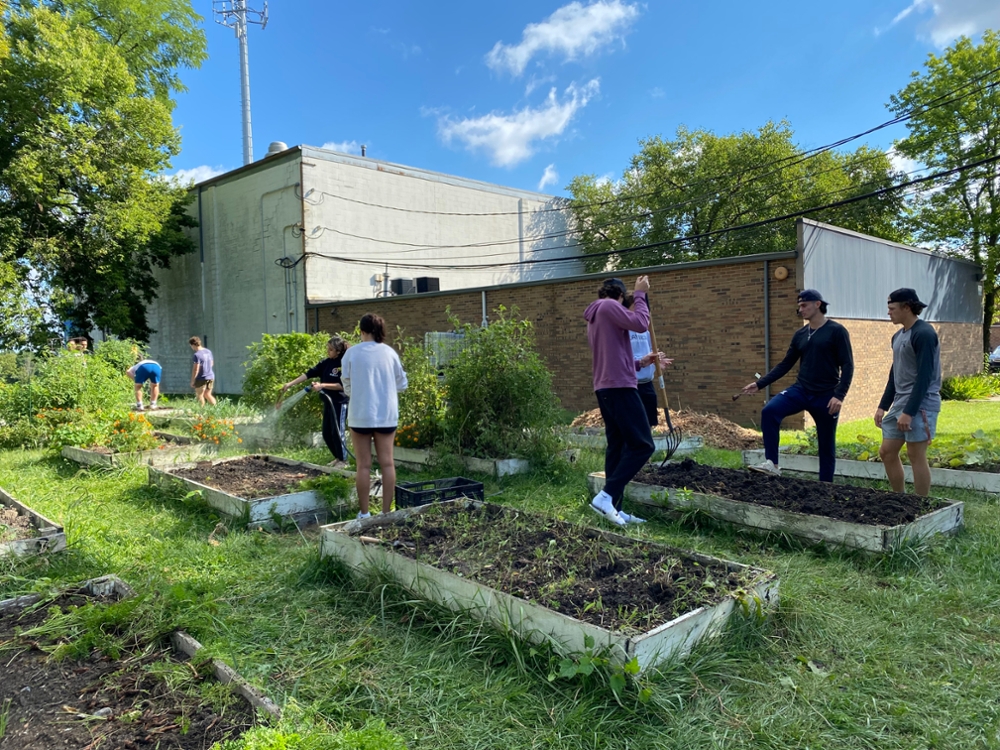Growing Food, Building Community: ENGL-205

ENGL-205: Literature and the Moral Imagination
Dr. Sheena Steckl
With Brick Farms, Last Mile, and La Soupe
Every day as Musketeers hike their way up to the HUB to work out bright and early, to Starbucks for a midday coffee, or to U-Station after a long day of class, they pass the NEXUS Garden – Xavier University’s campus farm. This space – stewarded by Bellarmine Chapel – is a shared effort between the Norwood, Evanston, and Xavier communities, and one particular group of Xavier students finds itself putting into the garden an incredible effort for an incredible cause.
Dr. Sheena Steckl of the English Department has the unique opportunity to teach a Service and Immersive Learning section of Literature and the Moral Imagination, a requirement for all undergraduate students. This section of her course focuses primarily on inequality in the food system, and every week students volunteer with Brick Farms, which operates the NEXUS Garden, to help give food to the local food pantry. In addition to this weekly service on the campus farm, Dr. Steckl’s students engage in food rescue for Last Mile and have a cooking lesson about “scrappy cooking” with La Soupe. By connecting the dots between the coursework and the physical volunteer labor at the garden, Dr. Steckl links the classroom content to service. “We get to actually do something,” she says, “rather than just read about people are doing things.”
This unique course requires a unique method of community building. The students learn directly from Dominique Peebles, the founder of Brick Farms, who encourages them to ask questions by sharing his own experiences of times he has messed up or of growing brand new unexpected plants. Within the classroom, Dr. Steckl builds community through facilitating a space for sharing their own experiences. “A lot of us got wet and dirty harvesting peppers, tomatoes, and ground cherries and clearing out beds,” she says. “We joked about how gross we are going to be for our other classes.” She also engages with the students in casual conversation before class, allowing them an opportunity to put down their phones, chat with each other, and decompress before jumping into coursework. “If people aren’t comfortable talking about the best movie villains, I cannot expect them to discuss systemic racism in higher education,” Dr. Steckl says.
Admiring the growth which she has witnessed her students experience, Dr. Steckl muses, “I love that my students get to become the people we read about who are making efforts to improve outcomes for others.” In teaching this course, she has found that her students have gained knowledge which cannot be found in the classroom alone, and that they have “realize[d] the value of the impact they can make as an individual.” Though it is only the beginning of the semester, Dr. Steckl knows that by the end of the course her students will be changed in subtle yet brilliant ways, and most have no idea what is coming.